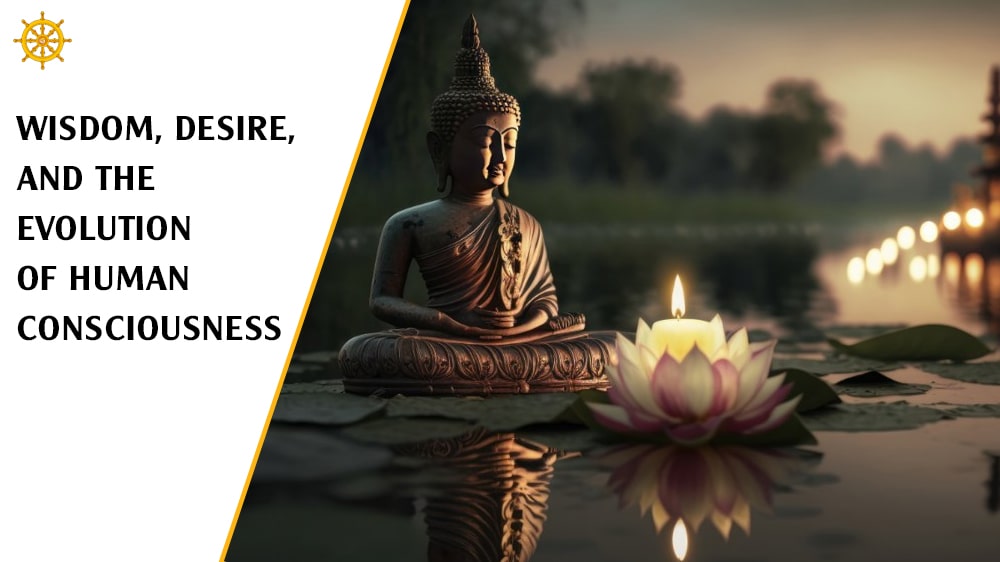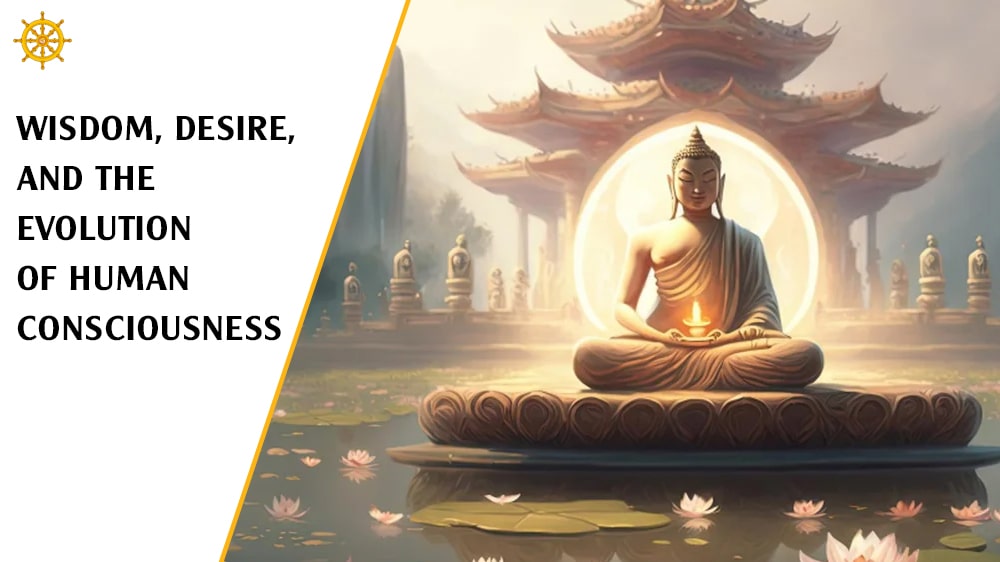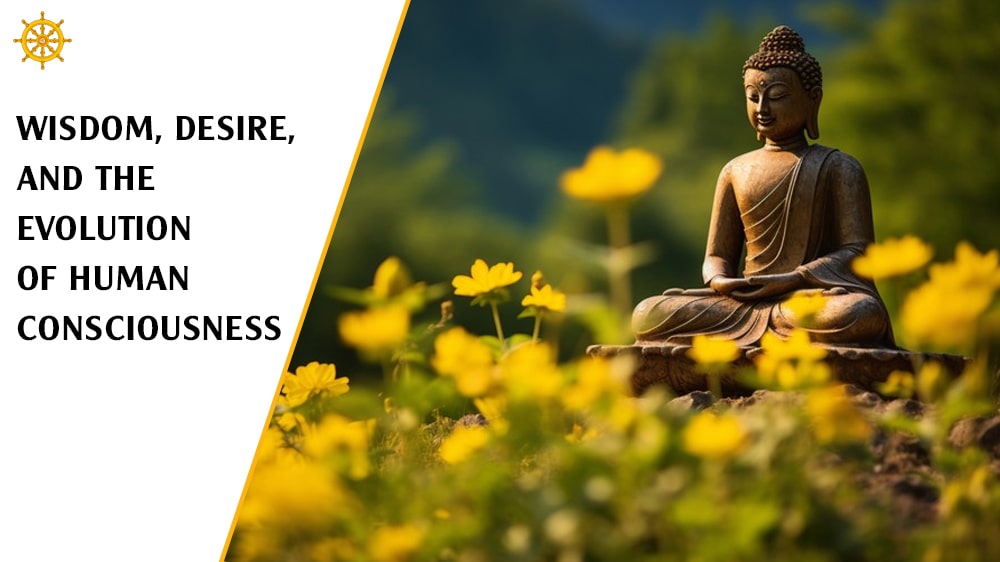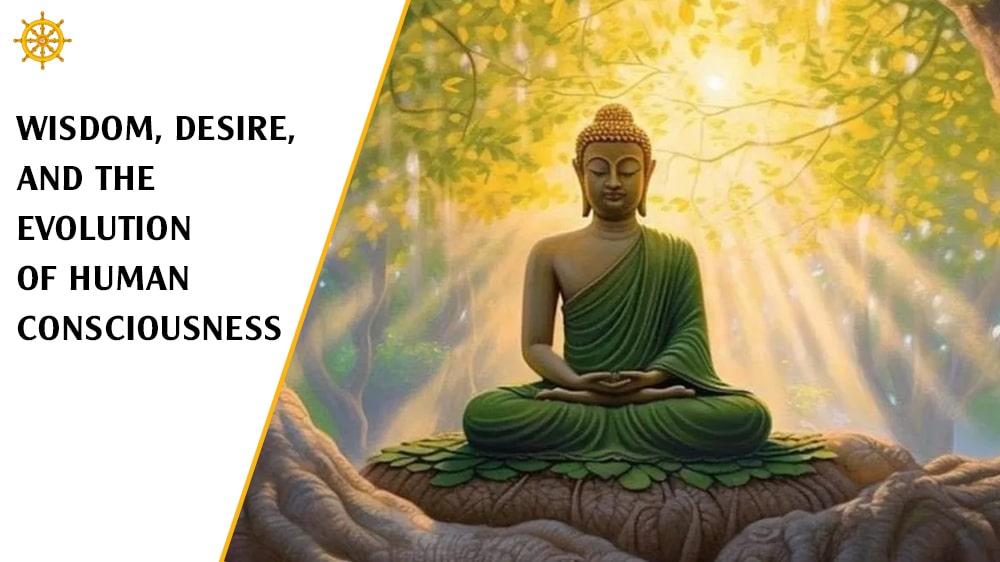Desire is an innate tendency of all beings—from humans to animals and even plants. However, desire is not merely about craving; it is also a manifestation of ignorance and attachment. The Buddha taught that liberation is not just about abandoning greed, hatred, and delusion, but also about cultivating wisdom and transcending limitations. True wisdom is the essence of life, and the evolution of wisdom is the path to liberation from suffering.
The Stages of Intellectual and Spiritual Evolution
Observing nature, we see that plants and animals have less attachment than humans, yet they do not surpass us in evolution. True evolution lies in expanding awareness, progressing from ignorance to wisdom.
🔹 The journey often begins with sports and entertainment—where one learns discipline, sharpens the mind, and explores personal limitations.
🔹 Next comes art and literature, where one starts to perceive beauty, deeper philosophy, and the emotions of life.
🔹 Progressing to technology and invention, wisdom is applied to create tools and improve existence.
🔹 Higher still is scientific inquiry, where one contemplates the laws of the universe and the fundamental principles of nature.
🔹 The pinnacle of wisdom is the realization of the mind and the path to liberation—when one seeks to answer: Who am I? Why do I exist? How can I transcend suffering?
💡 This journey is about breaking limitations—from basic awareness to profound understanding of the cosmos and oneself.

Monks, Scientists, and the Path of Wisdom
Many assume that renouncing material possessions equates to abandoning desire, but in reality, desire is not just about wealth—it also manifests in the craving for fame, power, and self-glorification.
🔸 A person with less desire is not necessarily wiser.
🔸 A person with less anger is not necessarily stronger.
🔸 A person with less ignorance tends to evolve further.
A monk may have fewer desires than a scientist, but if they lack wisdom, they have yet to reach true enlightenment. Conversely, a scientist may still have attachments, but if they possess profound wisdom, they may grasp deep truths about the universe and existence.
🔹 The Buddha was not just an intellectual scientist—He was the ultimate scientist of the mind. While others focused on creating material comforts like clothing, houses, and vehicles, He dedicated His infinite wisdom to discovering the path to liberation.

Science & Spirituality – A Correct Understanding
If a scientist enters the spiritual path, they only need a single step—because their wisdom already exists. But if an ordinary person jumps from ignorance to spirituality, it may take countless lifetimes to truly understand.
📌 Human nature tends to glorify oneself:
✔ A monk claims that spiritual practice is the highest path.
✔ A poet insists that art is the most noble pursuit.
✔ A businessman asserts that making money is the greatest skill.
✔ A scientist believes that scientific research is the supreme path.
💡 The truth is: Everyone believes they are the highest. But when someone claims they are the greatest—listen, but do not blindly believe.
Helping Others Correctly – The Truth of Life
Kindness alone is not enough—compassion must be guided by wisdom. Giving without discernment does not always bring benefit. True generosity requires right understanding, right timing, and right method.
✔ Helping a poor person overcome suffering is meritorious.
✔ Bringing more joy to others is virtuous.
❌ Inflicting suffering upon others is wrong.
❌ Taking away another’s happiness is wrong.
📌 How to help others correctly:
🔸 A starving person needs food—helping them creates immense merit.
🔸 A wealthy person still consumed by greed—helping them may have little merit.
🔸 An enlightened monk in need—supporting them brings boundless merit, as they can uplift countless others.
🔸 A monk who is not yet awakened but already well-fed—giving more to them may not generate significant benefit.
👉 Not all giving is virtuous—only wise giving leads to true merit.

The Greatest Deception: Religion, Economy, and Politics
📢 Throughout history, people have been deceived through three things: MONEY – POWER – FAME.
🔹 Religions have exploited faith to extract wealth.
🔹 Corporations have manipulated consumers for profit.
🔹 Governments have misled people to gain power.
💡 If you visit a temple and they appeal to your greed, be cautious!
🚨 Beware of promises like:
❌ “”Donate money and you will be rich in your next life.””
❌ “”Offerings will make you more beautiful and intelligent.””
👉 The truth:
✔ To be wealthy—one must work, apply intelligence, and embrace science.
✔ To be beautiful—one must care for the body, live healthily, and cultivate inner peace.
📌 If wealth came from offerings alone, then Myanmar—one of the most temple-rich nations—would be the most prosperous country in the world.
Karma & True Wealth
📌 Wealth does not come from rituals, but from wise management and the application of knowledge.
📌 Where there is science, there is prosperity.
📌 A generous heart brings richness in relationships, but material wealth requires intelligence and strategy.
✔ Material wealth comes from intelligent management.
✔ Spiritual wealth comes from selflessness and virtue.
✔ A wise person balances both.
True Spirituality – The Path to Liberation
🔸 Some people abandon sensual desire but still crave power, money, or recognition.
🔸 Some forsake status and wealth but still desire admiration and validation.
🔸 A truly liberated being does not seek to be loved, but finds joy in loving others.
📌 To assess a person’s spiritual maturity, ask:
✔ Do they still chase after money?
✔ Do they still seek power?
✔ Do they still crave fame?
✔ Do they still attach to emotional validation?
💡 Only when one transcends all these, do they reach the state of true non-self (Anattā).
Conclusion
✔ To attain wealth—understand the karma of material success.
✔ To attain happiness—understand the karma of the mind.
✔ To attain liberation—understand the karma of spiritual awakening.
📌 Choose your path wisely, for it is wisdom that determines the journey ahead. 🚀”

